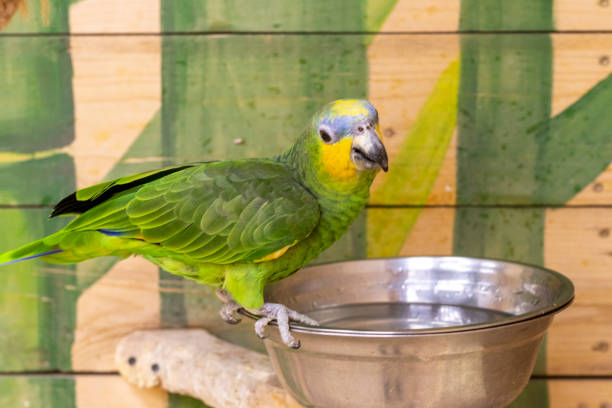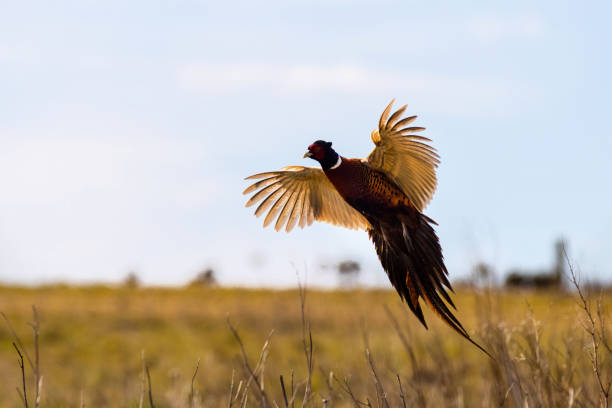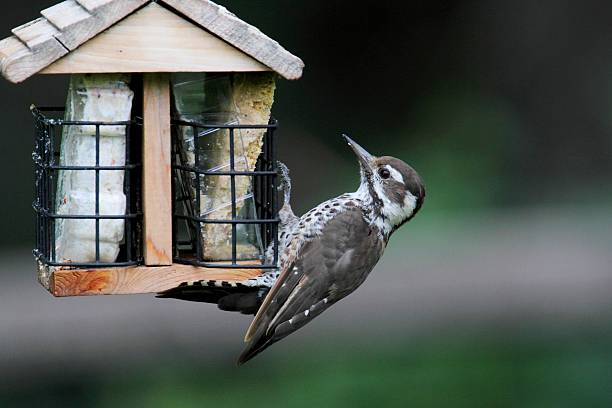Oye! Ever wondered if those chattering, squawking birds are actually little Einsteins with feathers? Well, you’re onto something big! Birds, especially some parrots, aren’t just attractive. They are smart animals. They can learn amazing things, form deep bonds with people, and even seem to understand what you’re saying. If you want a pet that feels like a smart friend and not just a decoration, a smart bird could be the right choice for you.
But hold on a second! Before you imagine a parrot doing your chores (they won’t, trust me!), it’s super important to know that a smart bird also means a bird with big needs. These aren’t like a goldfish you feed once a day. Their clever minds need constant activity, lots of attention, and the right kind of home to be happy and healthy. If they get bored or lonely, they can get stressed and cause trouble, sometimes even plucking their own feathers or screaming a lot.
In this friendly guide for 2025, we’re going to dive deep into the world of these amazing feathered geniuses. We’ll discuss what makes a bird “smart.” You’ll meet the top bird breeds that you can train. Plus, we’ll offer honest tips to consider before bringing one of these special friends home. So, pull up a chair, grab a cup of chai, and let’s get ready to understand these incredible winged wonders!
What Does “Intelligent Bird” Even Mean? It’s More Than Just Talking!
When we say a bird is “intelligent,” it’s not just about how many words it can say. While talking is cool, bird intelligence shows up in many different, exciting ways:
- Solving Puzzles: Imagine a bird figuring out how to open a complicated lock on its cage, or finding a hidden treat using its smarts. Some birds are real masters at this! They can untangle knots or open tricky containers to get what they want.
- Mimicking and Understanding Speech: Yes, many birds can copy sounds. But the really smart ones can learn a huge number of words. The best part? They can sometimes even use those words at the right time. For example, asking for “more water” when their dish is empty. It’s like they truly understand what the words mean, not just copying sounds.
- Reading Your Feelings: Intelligent birds often form very strong bonds with their owners. They can actually pick up on your mood! If you’re happy, they might get excited with you. If you’re sad, they might come closer to offer comfort. This “emotional intelligence” is a big part of what makes them such special pets.
- Great Memory: These birds remember routines, their favorite people, and even tricky actions. If you teach them a trick, they’ll remember it even after some time.
- Being Social: Most smart birds are very social animals. In the wild, they live in big groups (flocks). When they live with you, you become their flock. This means they need a lot of interaction and need to feel like they belong and are part of your family.
- Easy to Train: Because they’re so smart and often eager to please, intelligent birds are usually very good at learning new things. They respond well to your instructions and love the challenge of learning tricks or new behaviors.
Remember, every single bird is different, just like every person is different. One bird of a “smart” type might learn faster than another. To train your bird well, be patient. Do things consistently. Always reward good behavior with a tasty treat or a gentle scratch.
Meet the Feathered Geniuses: Top Intelligent Pet Birds You Can Train
Ready to meet the stars of the show? Here are some of the most intelligent pet bird species known for their brains and how well they can be trained:
1. African Grey Parrot (The True Brainiac of the Bird World)
- Why they’re so smart: When people talk about “talking birds” or “smart birds,” the African Grey Parrot is almost always at the top of the list. Many experts compare their thinking skills to a human child who is 3 to 5 years old. They’re famous not just for saying words, but for actually understanding what those words mean and using them in the right situations. Some African Greys have learned hundreds, even over a thousand, words and phrases! They can also tell you about colors, shapes, and even if they want a certain toy.
- What they can be trained to do:
- Talk, Talk, Talk! Their ability to speak is legendary. They can mimic many voices, including yours! They can also copy household sounds, like a ringing phone or a barking dog. Plus, they learn long, complex sentences. There are many stories about African Greys asking for specific food items by name, saying “Good morning!” when someone walks into the room, or even making funny comments about what’s happening.
- Real Conversations (Almost!): They can learn to ask for what they want. They can describe objects around them. Sometimes, they even comment on their surroundings in a way that makes sense.
- Solving Puzzles: They love toys that make them think. They can learn to unlock cages (so you need strong locks!), or move things around to get to a treat.
- Advanced Tricks: With regular practice, they can learn to wave goodbye, fetch small items, point to things you name, and follow many steps in a command.
- Things to think about before getting one:
- They Need Lots of Mental Exercise: Because they’re so smart, African Greys get bored very easily. If they don’t have enough new toys, puzzles, and lots of interaction with you, they can get into trouble. This might include pulling out their own feathers (feather plucking) or screaming a lot.
- Sensitive and Social: They form very, very strong bonds with their human family. They need lots of daily time with you. If they feel ignored, they can get very stressed and unhappy.
- They Live a VERY Long Time: African Greys can live for 50 to 70 years, and sometimes even longer! Getting one is a commitment for your whole life, and maybe even for your children’s lives. You need to plan for their care for a very long time.
- Can be Challenging: Their high intelligence means they can be demanding pets. They need an owner who truly understands their complex needs and is ready for a close, interactive friendship.
2. Amazon Parrot (The Life of the Party and a Clear Speaker!)
- Why they’re so smart: Amazon Parrots are known for their fun personalities. They are rare birds. They learn quickly and love being social, which makes them eager students for training. Some types, like the Double Yellow-Headed Amazon and Yellow-Naped Amazon, are famous for their clear speech.
- What they can be trained to do:
- Speak Clearly and Loudly! Many Amazons can learn a huge number of words and phrases. They often copy human voices so well it’s hard to tell it’s a bird! They also love to sing and copy sounds they hear around the house.
- Fun Tricks: They love to be the center of attention and can easily learn many tricks. This includes waving, turning around in a circle, playing simple fetch games, or stepping onto your hand when you ask.
- Social and Friendly: They love being around people and respond very well to their owners.
- Things to think about before getting one:
- Can Be Very Loud: Amazons are known for being quite noisy, especially with their loud squawks and calls. This is something to consider if you have close neighbors or live in an apartment.
- Need Lots of Attention: They are very social birds and need plenty of time interacting with you to stay happy and prevent bad habits.
- “Bluffing” Stage: Young male Amazons, especially as they become teenagers, might go through a stage where they can be a bit nippy or test your patience. It’s important to be calm and consistent with your training during this time.
- Long Lifespan: They also live a long time, usually 40 to 70 years.
3. Cockatoo (The Loving “Cuddle Bug” with Smart Brains)
- Why they’re so smart: While Cockatoos might not be as famous for talking as African Greys, they are incredibly intelligent in other ways. They are masters at solving problems, often figuring out how to open complicated cage locks or use simple tools. They are also highly sensitive and can pick up on your feelings very well.
- What they can be trained to do:
- Solving Problems and Using Tools: They are famous for understanding how things work. You might see them use a stick to reach something or figure out how to unlatch a difficult lock.
- Amazing Tricks: They love attention and bond closely with their owners. This makes them great at learning tricks. They love to dance, wave, spin around, or even play simple games of fetch.
- Mimicry (some talking): Some Cockatoos can learn a good number of words, but their voice might not always be as clear as an Amazon or African Grey. They are excellent at copying sounds they hear.
- Deep Emotional Bonds: They become incredibly attached to their owners and respond very well to your emotions.
- Things to think about before getting one:
- Very Needy for Attention: Cockatoos may be the most emotionally demanding parrots. They need constant hugs, head scratches, and playtime. Not getting enough attention can lead to serious issues. Birds might pull out their feathers, scream constantly, or become aggressive.
- Very, Very Loud: They can make incredibly loud noises, especially when they want your attention or are upset. This is a very important point if you live in an apartment or have close neighbors.
- Love to Chew: Their strong beaks mean they love to chew. They need a steady supply of safe toys to chew on. Also, keep a close eye on them when they’re out of their cage. This will help prevent them from ruining your furniture.
- Dusty Birds: They produce a fine, white powder (called “powder down”) that can make some people sneeze or have allergies.
- Long Lifespan: Like other large parrots, they live for a very long time, usually 40 to 80 years, sometimes even longer.
4. Budgerigar (Budgie/Parakeet – The Tiny Talker with a Big Voice!)
- Why they’re so smart: Don’t let their small size fool you! Budgies are surprisingly intelligent and can be amazing talkers. There are even world records for budgies knowing thousands of words! They are also social birds and learn very quickly.
- What they can be trained to do:
- Huge Vocabularies: Especially male budgies can learn an incredible number of words and short phrases. Their voices can sometimes sound a bit rough or “gurgly,” but with practice, you can understand them well.
- Copying Sounds: They love to copy sounds from your home and whistle tunes.
- Simple Tricks: With a lot of patience, they can learn tricks like stepping onto your finger, waving, or coming when you call their name.
- Target Training: They respond very well to “target training,” where you teach them to touch a stick or your finger with their beak for a treat. This is a great way to keep them mentally active.
- Things to think about before getting one:
- Small Size, Big Sound: Even though they’re small, they can be quite vocal with their constant chatter and chirping.
- Still Need Company: They are social birds. They need interaction with you, or if you can’t be with them all the time, consider getting a second budgie so they have a friend.
- Delicate: Because they are so small, they are more fragile than larger parrots. You need to handle them very gently.
- Lifespan: They usually live for 5 to 10 years, though some can live longer. They are often a good choice for people new to owning birds and training.
5. Indian Ringneck Parakeet (The Clear-Voiced Chatterbox)
- Why they’re so smart: Indian Ringnecks are clever birds. They can mimic human speech very clearly. They can learn longer phrases and even full sentences, often with a very clear, distinct “voice.” They are quite independent but form strong bonds with the person they choose as their favorite.
- What they can be trained to do:
- Speak Very Clearly: Many Ringnecks have a real talent for clear speech and can learn very impressive numbers of words and phrases.
- Tricks and Commands: They are smart and graceful. They learn tricks easily, like bringing small objects, spinning around, or flying to you when called.
- Solving Puzzles: They are quite good at figuring out how to solve simple puzzles.
- Things to think about before getting one:
- Can Be Stubborn: They have strong personalities and can be a bit nippy if they are not handled gently and trained consistently from a young age. Patience is very important with them.
- “One-Person” Birds: They often pick one person in the family to bond with very strongly and might be less friendly or even a bit shy with others in the house.
- Can Be Loud: Like many parrots, they can make quite loud noises, especially with their sharp, piercing calls.
- Lifespan: They typically live for 20 to 30 years.
6. Cockatiel (The Gentle Whistler and Sweet Learner)
- Why they’re so smart: Cockatiels are gentle and have lovely personalities. They can also whistle and copy sounds very well. Male cockatiels might not learn as many words as African Greys or Amazons. But they can say quite a few phrases. They are also great at whistling complex tunes. They respond very well when you reward their good behavior.
- What they can be trained to do:
- Whistling Master: They are fantastic at whistling. They can learn entire songs, ringtones, and copy sounds from your home.
- Simple Speech: Male cockatiels can learn words and short phrases, often in a quieter, “whispery” voice.
- Cute Tricks: They love to please. They can learn tricks easily. For example, they can step onto your finger, wave, bob their heads, or fly to you when called.
- Affectionate Interaction: They truly enjoy being held and cuddled gently, which makes training a fun way to bond with them.
- Things to think about before getting one:
- Dusty Birds: Like cockatoos, they produce a fair amount of fine white powder (dander), which can cause allergies in some people.
- Sensitive: They are quite sensitive birds and like routines. They respond best to gentle handling and a calm environment.
- Lifespan: They usually live for 15 to 20 years, sometimes longer. They are often suggested as good “first parrots” for new bird owners.
7. Macaw (The “Gentle Giant” with a Big Brain)
- Why they’re so smart: Macaws are the biggest parrots you can own, and they are incredibly intelligent. They can form very deep emotional bonds, are great at solving problems, and can learn a lot. Types like the Blue and Gold Macaw are especially liked for their personalities and how well they can be trained.
- What they can be trained to do:
- Talk and Copy Sounds: Many macaws can learn a good number of words, though their voices can be very loud and a bit rough. They are excellent at copying all sorts of sounds.
- Impressive Tricks: Because they are so big, their tricks look very impressive! They can learn to fetch objects, wave their foot, dance, retrieve items, or even open very complicated latches.
- Learning Good Behavior: Due to their size and strong beaks, training them early is key. Teach them good manners, such as not nipping.
- Things to think about before getting one:
- Huge Size, Huge Needs: Macaws are giant birds! They need very, very large cages and a lot of open space in your home for flying and playing safely.
- Extremely Loud: Their calls are incredibly loud and can be heard from a long distance. This means they are definitely not suitable for apartments or homes where you have close neighbors.
- Very Demanding: They need a huge amount of attention, mental playtime, and physical exercise. If they don’t get enough, they can become aggressive or develop very serious bad habits.
- Powerful Beaks: Their beaks are unbelievably strong. They can cause very serious injuries if they decide to bite. Training them consistently from a very young age is absolutely necessary.
- Extremely Long Lifespan: Macaws can live for 60 to 100 years or even more. This means getting a macaw is a commitment that can last for several generations of your family. You need to plan for their care for a very, very long time.
Smart Training Secrets: How to Teach Your Feathered Genius
No matter which smart bird you pick, successful training depends on being a good teacher. It’s also about building a strong, trusting friendship. Here are some simple, yet powerful, tips:
- Start Young: Younger birds, like children, are often more willing to learn and adapt. If you get a baby bird, start training early!
- Build Trust First: Before you even think about tricks, your bird needs to trust you completely. Spend time gently talking to them, offering small treats by hand, and giving them gentle head scratches (if they like it). Never force interaction. A bird that trusts you will be eager to learn.
- Always reward good behavior. This positive reinforcement is the best way to train any animal, especially birds. When your bird does something you like, give them a small treat right away. You can also offer excited praise, like saying “Good bird!” or give a loving head scratch. They will quickly learn to repeat the behavior that earns them rewards. Never scold or punish your bird, as this will only scare them, break their trust, and can lead to them becoming aggressive or afraid of you.
- Keep Training Sessions Short and Fun: Birds have short attention spans, especially when they’re young. Try to do 5 to 10-minute training sessions, a few times a day, instead of one long, boring session. End the session on a positive note, even if it’s just for a small success.
- Be Consistent – Everyone in the Family Too! If you’re teaching your bird to “step up,” everyone in your home needs to use the same command and the same method. If one person says “step up” and another says “come here,” the bird will get confused. Regular practice, every day, helps them remember what you’re teaching.
- Patience, Patience, Patience! Some birds learn faster than others, and some days your bird just won’t be in the mood. Don’t get upset or discouraged if your bird doesn’t pick up a trick right away. Just try again later or tomorrow. Celebrate the small successes!
- Socialize Them (Let Them Be Part of the Family): Intelligent birds are naturally social. They need daily interaction with their “human flock.” This means talking to them, playing games, and letting them have safe time out of their cage. A lonely bird is an unhappy bird, and an unhappy bird can develop serious behavioral problems.
- Provide Lots of Fun Toys and Challenges (Enrichment): Their smart brains need to be kept busy! Give them puzzle toys that make them think, “foraging” toys where they have to work to get food, and a variety of safe toys they can chew on, climb on, and play with. This stops them from getting bored and destructive.
- Good Food and Health = Happy Learning: Make sure your bird has a healthy, balanced diet and gets regular check-ups with a bird vet. A healthy bird is a happy, active, and trainable bird. If they’re not feeling well, they won’t want to learn.
Before You Bring a Feathered Friend Home: Important Things to Consider
Getting any pet is a big decision, but with highly intelligent birds, it’s an even bigger one. Please think about these points very carefully before you decide to get one. These birds are a lifelong responsibility.
- Are You Ready for the Time Commitment? These birds need hours of attention every single day, not just a few minutes. Are you prepared to spend a significant part of your day interacting with your bird for many, many decades? If your lifestyle changes (like getting a new job, having children, or moving), will you still have enough time for your bird?
- What About the Money? Smart birds can cost a lot, ranging from thousands to hundreds of thousands of Pakistani Rupees, based on their species. And that’s just the start! Their ongoing costs for high-quality food, a large cage, lots of toys (which get destroyed!), and regular vet visits can be very substantial. It’s a significant financial commitment for many years.
- Can You Handle the Noise? Many of these birds, especially Amazons, Cockatoos, and Macaws, are incredibly loud. Their squawks and calls can be piercing and heard far away. Are you and your neighbors prepared for this level of noise, especially if you live in an apartment or close to other homes in Vehari?
- Are You Okay with the Mess? Birds are naturally messy! They drop food, throw seeds, shed feathers, and create a fine dust (especially Cockatoos and Cockatiels). You will need to clean the cage and the area around it very regularly.
- Are You Prepared for a Lifelong Friend? This is perhaps the most important point. Many of these birds live for 40, 60, 80, or even 100 years! This means your bird could potentially outlive you. You need to have a serious plan for who will take care of your bird if something happens to you. It’s truly a multi-generational commitment.
- Do Your Homework (Research is Key!): Learn as much as you possibly can about the specific type of bird you’re interested in before you bring one home. Read books. Watch videos. Join online groups for that bird species. Most importantly, talk to experienced bird owners. Visit reputable breeders or bird rescues. They can give you real-world advice.
- Understand Their Temperament: Just like people, each bird has its own personality. Some might be shy, some playful, some a bit stubborn. Try to spend time with a bird before you decide to adopt it, if possible, to see if your personalities match
Conclusion: A Rewarding Journey with a Feathered Friend!
Highly intelligent pet birds offer an incredibly unique and rewarding experience for the right kind of owner. Their amazing ability to learn, to “talk,” and to form deep, loving bonds can bring immense joy, laughter, and companionship into your home. They can truly become a cherished member of your family.
However, this intelligence and the ability to train them comes with significant responsibilities. They need plenty of mental stimulation to engage their smart brains. They also require a lot of social interaction with you. Plus, your commitment often lasts a lifetime.
Learn about the special needs of birds such as African Greys, Amazons, Cockatoos, Budgies, Indian Ringnecks, Cockatiels, and Macaws. Be ready for the commitment they need, so you can create a loving bond with these amazing feathered friends. Choose wisely, train them with lots of love and patience, and you’ll have a truly remarkable companion who will amaze you for many, many years to come!
FAQs About Highly Intelligent Pet Birds You Can Train
Q1: Can any bird learn to talk?
A1: While many bird species can mimic sounds, not all can learn to “talk” in a way that sounds like human speech. Parrots (especially African Greys, Amazons, and some Budgies and Indian Ringnecks) are the best at it. Some other birds, like mynah birds, are also good mimics. Some birds in the same species talk better than others. This varies by individual and depends on their training and interaction.
Q2: Is it true that female parrots don’t talk as well as males?
A2: This is a common belief, but it’s not always true. Male Budgies usually talk better than females. However, in bigger parrot types, like African Greys and Amazons, both males and females can learn to talk well. What matters more is the individual bird’s personality, how much time you spend with them, and how consistently you train them.
Q3: How long does it take to train a smart bird?
A3: Training a bird is a lifelong journey! Basic training (like stepping up, or saying a few words) might take a few weeks or months. But teaching them more complex tricks or a large vocabulary will take years of consistent effort and practice. Remember, it’s about building a relationship and having fun together, not just reaching a goal quickly.
Q4: Do intelligent birds need to be kept alone, or can they have a bird friend?
A4: Many intelligent birds are very social and can benefit from having a bird friend, especially if you can’t be with them all the time. However, if they have a bird friend, they might bond more with each other and be less interested in bonding with humans or learning to talk. It’s a balance. If your goal is a very close bond and talking, a single bird might be better, but only if you can provide a huge amount of human interaction. If you get two birds, they still need lots of human attention!
Q5: What kind of cage do these intelligent birds need?
A5: Highly intelligent birds (especially parrots) need very large cages! A small cage will make them bored, stressed, and unhappy. The cage should be big enough for them to fully spread their wings and move around comfortably. Larger birds like Macaws need truly enormous cages. The cage also needs to be strong, with good locks (because smart birds can open them!). Always research the specific cage size recommendations for your chosen bird species.
Q6: Can I teach an old bird new tricks?
A6: Yes, you absolutely can! While younger birds might learn faster, older birds can certainly learn new tricks, words, and behaviors. It might take a bit more patience and consistency, but an older bird can form strong bonds and enjoy learning just as much as a young one. Many rescued older birds thrive when given a loving, stimulating home and patient training.
Q7: What are common signs that my intelligent bird is bored or unhappy?
A7: Pay attention to these signs:
- Feather Plucking: Pulling out their own feathers is a common sign of stress, boredom, or medical issues.
- Excessive Screaming: Constant, loud screaming that seems out of place can mean they’re bored or lonely.
- Aggression: Biting or becoming unusually aggressive can be a sign of unhappiness.
- Repetitive Behaviors: Pacing back and forth, rocking, or constantly doing the same thing.
- Lack of Interest: Not playing with toys or not wanting to interact with you. If you see these signs, it’s time to increase their interaction, provide more mental toys, and possibly visit a bird vet.
Q8: Where can I find a reputable breeder or rescue for these birds in Pakistan?
A8: Finding a reputable breeder is crucial for the bird’s health and temperament. Look for breeders who:
- Allow you to visit and see where the birds are kept (clean, spacious).
- Can show you the parent birds.
- Are knowledgeable and willing to answer all your questions.
- Provide a health guarantee.
- Don’t sell birds that are too young (they need time with their parents to learn important bird behaviors). Start by checking local bird clubs, avian vets, or online forums, like Pakistani pet groups. Look for recommendations in Lahore, Karachi, or near Vehari. Always be cautious and do thorough research before buying any pet bird.










